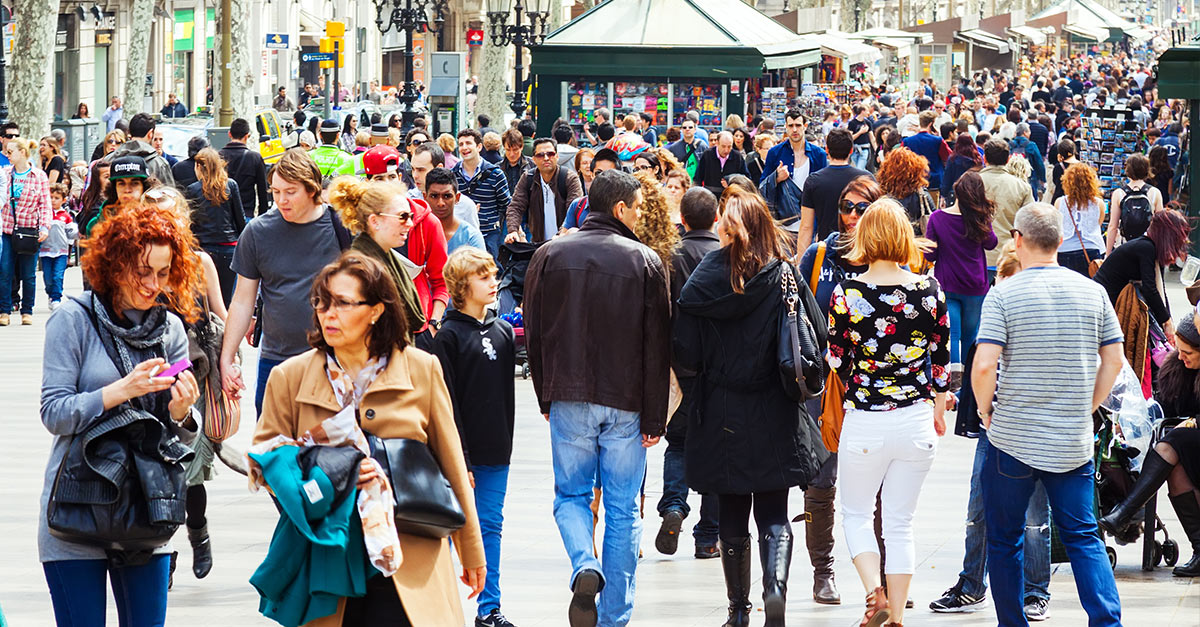Smart city technologies are already saving money and improving security in Barcelona. Now the mayor wants them to empower citizens, too.
The Catalonian capital Barcelona, named the world’s top smart city by Juniper Research last year, has a new mission as a wired metropolis.
After making Barcelona a safer city and saving millions of euros in public spending, a new administration sworn in last year hopes smart city infrastructure can help deliver returns more focused on the citizen.
“We are building on our smart city successes to date in order to deal with some of the most pressing issues facing our citizenship,”
says Paco Rodríguez Jimenez, CEO of Barcelona’s Municipal Information Technology Institute (Instituto Municipal de Informática in Spanish).
Although the exact nature of this new direction has yet to be defined, the focus is expected to shift from high-profile projects such as bus network upgrades or electric vehicle charging points to improving transparency and accountability or helping citizens have a greater say in decisions.
See also: Go #InsideInnovation at Cisco Barcelona
Turning to citizen-level impacts is perhaps a natural evolution for Barcelona’s smart city ambitions. Under the previous administration, led by Mayor Xavier Trias i Vidal de Llobatera, Barcelona courted a high-profile role in the emerging smart city scene.
It hosted the first-ever City Protocol meeting and is the ongoing host for the Smart City Expo World Congress. Behind the scenes, progress on smart city projects has been spectacular.
Spain’s second-largest metropolis has more than 80 smart city initiatives, from an apps portal to a scheme encouraging short-term uses for spare municipal land.
Many of these projects rely on network technologies enabled through a 500 kilometer-long fiber-optic cable network installed for the 1992 Summer Olympics.
By 2014, Barcelona was saving US$58 million a year through smarter water systems and $37 million from intelligent street lighting, while gaining an extra $50 million annually from smart parking technology.By 2014, Barcelona was saving US$58 million a year through smarter water systems and $37 million from intelligent street lighting, while gaining an extra $50 million annually from smart parking technology. The administration said the programs had helped create 47,000 new jobs.
Cisco expects these smart city programs could yield EUR€832 million (US$906 million) in cumulative economic benefits by 2025, including €86.4 million ($94.1 million) in increased tourist spending.
Meanwhile, improved surveillance is thought to have enhanced citizen security in the city. Official figures show criminal activity falling between 2014 and 2015, with theft, which accounted for more than half of all crimes in 2014, plummeting 30.2% in the space of a year.
But there was concern last year that these gains might go to waste in a radical shake up of Barcelona’s administration. Business-friendly Trias lost out to Ada Colau Ballano, a former social activist, in hotly contested municipal elections.
Rather than ignore Barcelona’s smart city heritage, though, Colau’s administration has signaled an intention to change the focus of its programs and bring them more in line with the citizen-based, grass-roots movement the new mayor represents.
“Our policy is not to make Barcelona a shop window for big companies to show off their products, but to see how technology can help solve urban problems,” said Agustí Colom i Cabau, councilor for employment, business and tourism, in news reports last year.
This is a transition that other smart cities might be watching with interest. “Many of our projects so far have helped show how the smart city concept can work,” says Rodríguez.
“Now it’s time to use that concept in tackling some of the serious social challenges that all cities are facing, from dealing with immigration to guaranteeing the right to basic services and housing.”























